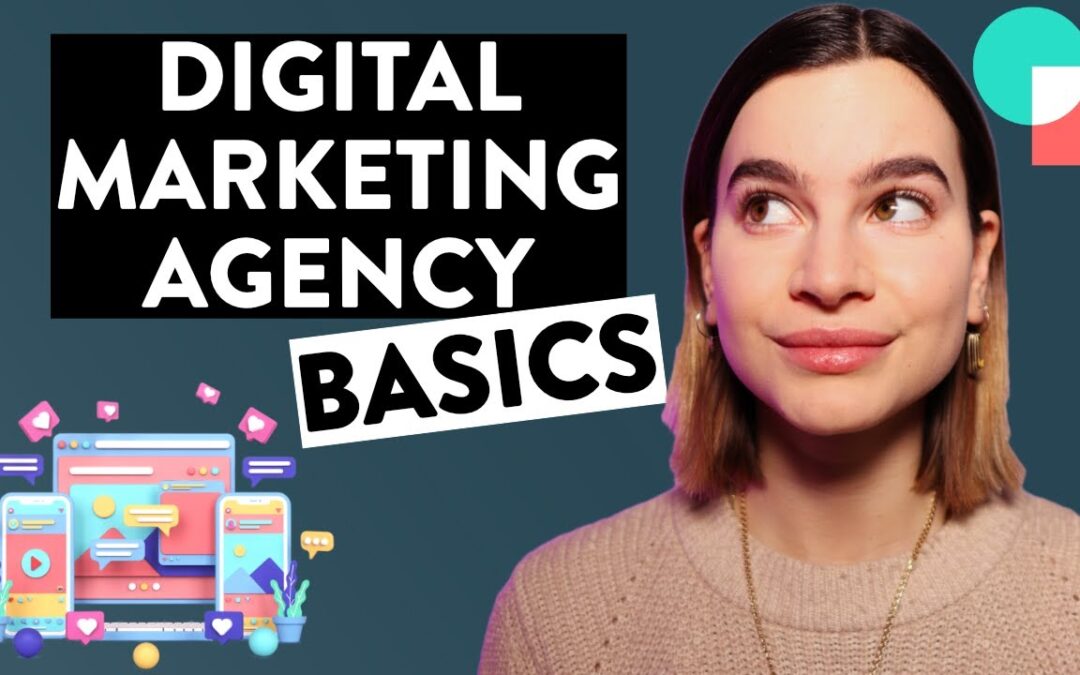Here are the top 6 things all digital marketing agencies should know!
——————————————————-
The Basic Things All Digital Marketing Agencies Should Know:
0:00 Intro
0:56 #1 Listen to your client
2:13 #2 Get to know what your client sells
2:54 #3 Stop focusing on vanity metrics
3:47 #4 A/B test every change you implement
4:55 #5 Setting up specific goals
6:07 #6 Avoid sunk time bias
7:01 Outro
——————————————————-
2 MONTH PROMOTION ENDED. USE THE FREEMIUM INVOLVE.ME HERE: https://app.involve.me/
——————————————————-
Check out some of our other videos:
Customer Feedback: Why You Need It And How To Get It: https://youtu.be/K82cBdZ2Wxc
Sales Funnel vs Flywheel: https://youtu.be/Y9jOfDXNqEY
——————————————————-
Follow us on our other social media platforms:
Facebook: https://www.facebook.com/involvemeapp
LinkedIn: https://www.linkedin.com/company/involvemeapp
Twitter: https://twitter.com/involvemeapp
——————————————————-
Interested in more? Check out our blog: https://www.involve.me/blog/
——————————————————-
1. Listen to your clients
Yes, you are the marketing expert, but your client is the expert at what they’re selling. You need to listen to their issues if you want to to help them.
When working with new clients, you need to be aware that:
1. Every client is uniquely positioned in the market, so even businesses in the same industry have different needs
2. Your client might not know the best strategy, but they know what they’re selling. Listening to them will help your campaigns have more impact.
A one-size-fits-all approach is a recipe for disaster. Make a decision about your strategy together with your client. Involve them in every step of the decision making process and keep them in the loop so they are aware of next steps.
2. Get to know what your client sells
Getting to know what your client sells makes all the difference. This is a must-know that I feel like not many people talk about. Getting to know your client’s product or service is just as important as getting to know what your clients marketing goals are.
If you’re working with eCommerce, buy their best selling product and read all the reviews. If you’re working with SaaS, make an account and use their product. Don’t just test it, but actually use it. This will make it easier for you to find what makes them unique and focus your marketing narrative around that.
3. Stop focusing on vanity metrics
Stop focusing on vanity metrics and explain to clients what numbers actually make a difference. Vanity metrics like clicks and traffic are a smoke screen agencies use to package failure as success. A vanity metric is exactly what it sounds like: all it does is make marketers feel good about themselves.
But clients are not buying it anymore. If you’re not delivering on what you promised to deliver, then say that. Admit that things are not working and adjust your course of action.
4. A/B test every change you implement
Use A/B testing for every change you implement with specific tools so the clients can see the impact of your work. The last thing you want your client to think is that there is no progress being made. They shouldn’t feel that they are wasting time and money. A/B testing allows you to measure progress, no matter how big or small.
Tools like HotJar, Optimizely or Google Optimize can help you see the impact of small changes you implement. This will keep your client up-to-date and see the success of everything you do. And that is always important! Don’t get to the point where your clients are wondering whether or not the strategies that have been implemented aren’t working. Show them the stats.
5. Setting up specific goals
Setting up extremely specific goals and checking in on them early is a game changer. We all know the importance of goal setting, but we shouldn’t just set goals, we need to get really specific. The more specific our goals, the easier it is to measure and track their success. So sit down with your client and outline these specific goals and the KPIs you will use to measure them.
This way you can keep track if your goals are met or if you need to adjust your course of action. The more specific your goals, the easier it is to see if they need to be adjusted or if they are on track.
6. Avoid sunk time bias
Avoiding sunk time bias helps you know a strategy is not working and let it go before it further damages your goals. When it’s not working, it’s not working. And you need to change strategies. This is why it’s so important to have specific goals so you can see when things go off the rails faster.
Not every strategy works for every business because there is no one-size-fits-all. So if you are not hitting your targets, make sure to re-evaluate and change approaches.
source


Recent Comments